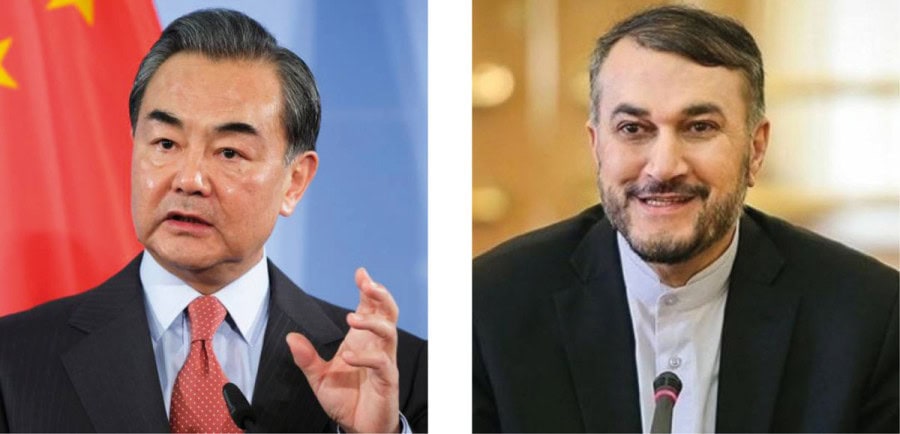Beijing rebukes US unilateral sanctions
The foreign ministers of China and Iran met on Friday to announce that a 25-year cooperation deal between the two countries had been launched, while China also took the opportunity to criticize the United States’ unilateral sanctions against Iran, Reuters reported.
The cooperation deal, which was signed last March, builds a partnership between the two countries in areas like health care, infrastructure, cybersecurity and agriculture, the news outlet noted.
A summary of the meeting between Wang and Iranian Foreign Minister Hossein Amirabdollahian was posted on China’s foreign ministry website on Saturday.
The multi-trillion dollar Chinese Belt and Road enterprise now involves Iran, and the deal is also meant to further partnerships with other nations. But the U.S. and other nations have expressed concern over the deal.
Chinese Foreign Minister Wang Yi also expressed support for a resumption of negotiations over the 2015 Iran nuclear deal, however, he criticized the U.S. for imposing unilateral sanctions against Iran. The U.S. has also imposed sanctions on China and is maintaining a diplomatic boycott on the upcoming 2022 Beijing Winter Olympics.
In 2018, then-President Trump pulled the U.S. out of the 2015 deal, which required Iran to curb uranium enrichment in exchange for easing sanctions against the country.
The Chinese foreign minister said that his country was against getting involved in the Iran’s personal business, the U.S.’s sanctions against the Middle Eastern country and using human rights and other topics as political manipulation, Reuters reported.
The international community has held multiple rounds of talks to revise negotiations over the 2015 Joint Comprehensive Plan of Action deal, with no direct participation by the U.S. given that the country is not a formal party.
Earlier this week, over 100 House Republicans wrote a letter to Secretary of State Antony Blinken to stop the ongoing engagement with the negotiations, saying “administration officials’ recent statements about the Vienna talks have made it clear that there is no productive diplomatic path forward at this time.”
The project aims to significantly expand China’s economic and political influence, and has raised concerns in the United States and elsewhere.
The foreign ministry summary said the agreement would deepen Sino-Iranian cooperation in areas including energy, infrastructure, agriculture, health care and culture, as well as cyber security and cooperation with other countries.
Wang, who earlier in the week met with several counterparts from Gulf Arab countries concerned about the potential threat from Iran, also said China hopes to set up a dialogue mechanism with Gulf countries to discuss regional security issues.
— Reuters







